Steven Pinker Blank Slate Quotes & Sayings
Enjoy reading and share 8 famous quotes about Steven Pinker Blank Slate with everyone.
Top Steven Pinker Blank Slate Quotes
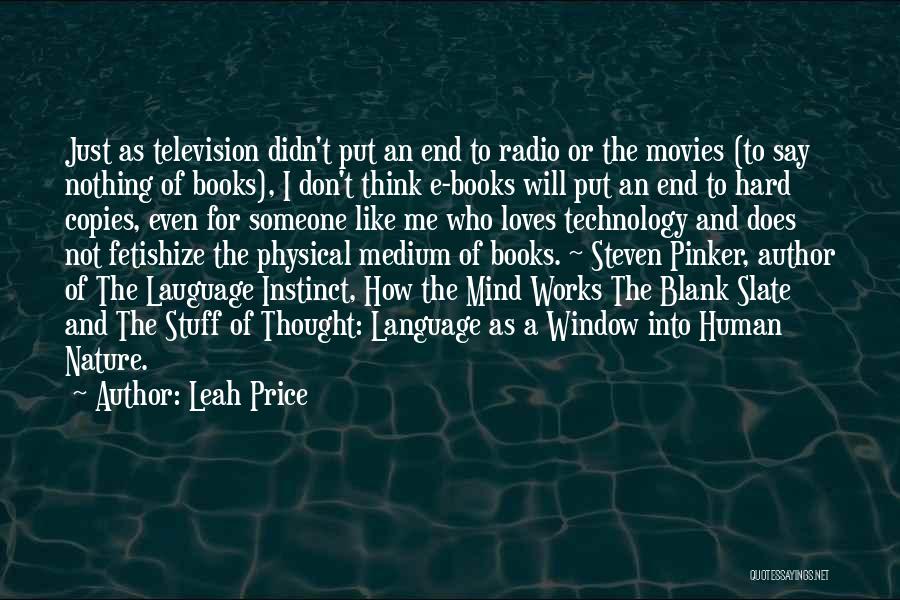
Just as television didn't put an end to radio or the movies (to say nothing of books), I don't think e-books will put an end to hard copies, even for someone like me who loves technology and does not fetishize the physical medium of books. ~ Steven Pinker, author of The Lauguage Instinct, How the Mind Works The Blank Slate and The Stuff of Thought: Language as a Window into Human Nature. — Leah Price

If [t]he mind is a system with many parts, then an innate desire is just one component among others. Some faculties may endow us with greed or lust or malice, but others may endow us with sympathy, foresight, selfrespect, a desire for respect from others, and an ability to learn from our own experiences and those of our neighbors. These are physical circuits residing in the prefrontal cortex and other parts of the brain, not occult powers of a poltergeist, and they have a genetic basis and an evolutionary history no less than the primal urges. It is only the Blank Slate and the Ghost in the Machine that make people think that drives are "biological" but that thinking and decision making are something else. — Steven Pinker

The strongest argument against totalitarianism may be a recognition of a universal human nature; that all humans have innate desires for life, liberty and the pursuit of happiness. The doctrine of the blank slate ... is a totalitarian's dream. — Steven Pinker

In The Blank Slate I argued that the modern denial of the dark side of human nature - the doctrine of the Noble Savage - was a reaction against the romantic militarism, hydraulic theories of aggression, and glorification of struggle and strife that had been popular in the late 19th and early 20th centuries. — Steven Pinker
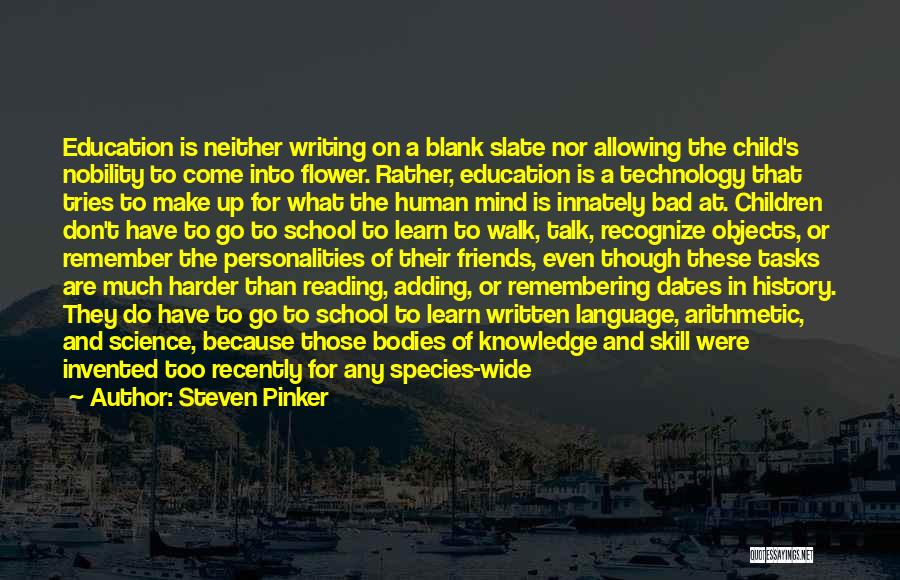
Education is neither writing on a blank slate nor allowing the child's nobility to come into flower. Rather, education is a technology that tries to make up for what the human mind is innately bad at. Children don't have to go to school to learn to walk, talk, recognize objects, or remember the personalities of their friends, even though these tasks are much harder than reading, adding, or remembering dates in history. They do have to go to school to learn written language, arithmetic, and science, because those bodies of knowledge and skill were invented too recently for any species-wide knack for them to have evolved. — Steven Pinker
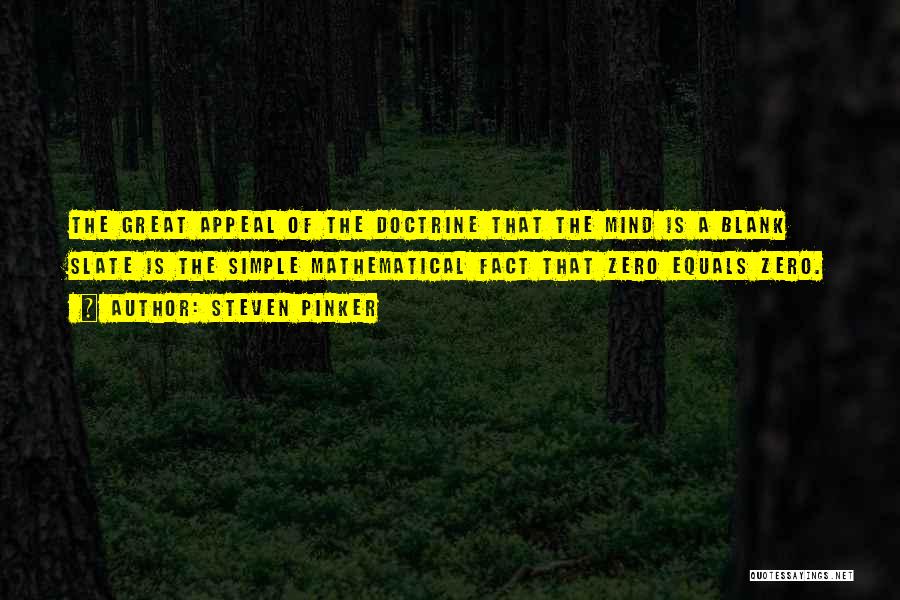
The great appeal of the doctrine that the mind is a blank slate is the simple mathematical fact that zero equals zero. — Steven Pinker
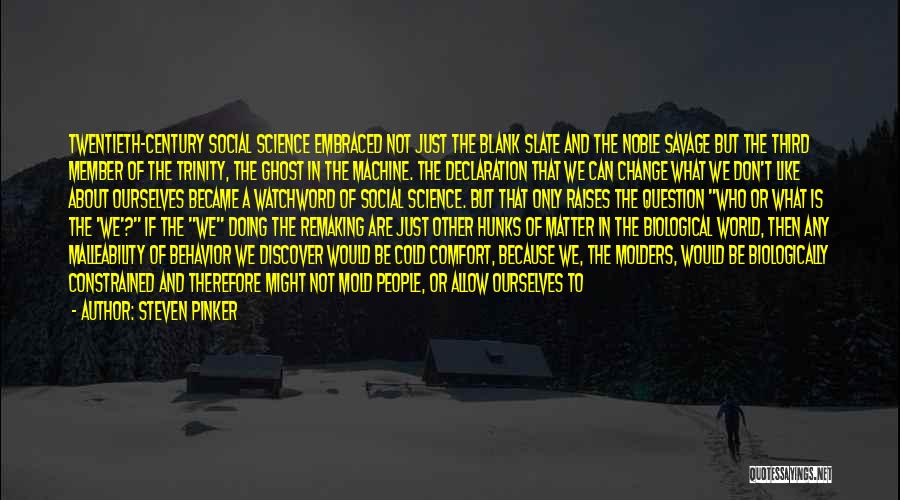
TWENTIETH-CENTURY SOCIAL SCIENCE embraced not just the Blank Slate and the Noble Savage but the third member of the trinity, the Ghost in the Machine. The declaration that we can change what we don't like about ourselves became a watchword of social science. But that only raises the question "Who or what is the 'we'?" If the "we" doing the remaking are just other hunks of matter in the biological world, then any malleability of behavior we discover would be cold comfort, because we, the molders, would be biologically constrained and therefore might not mold people, or allow ourselves to be molded, in the most socially salutary way. A ghost in the machine is the ultimate liberator of human will - including the will to change society - from mechanical causation. — Steven Pinker
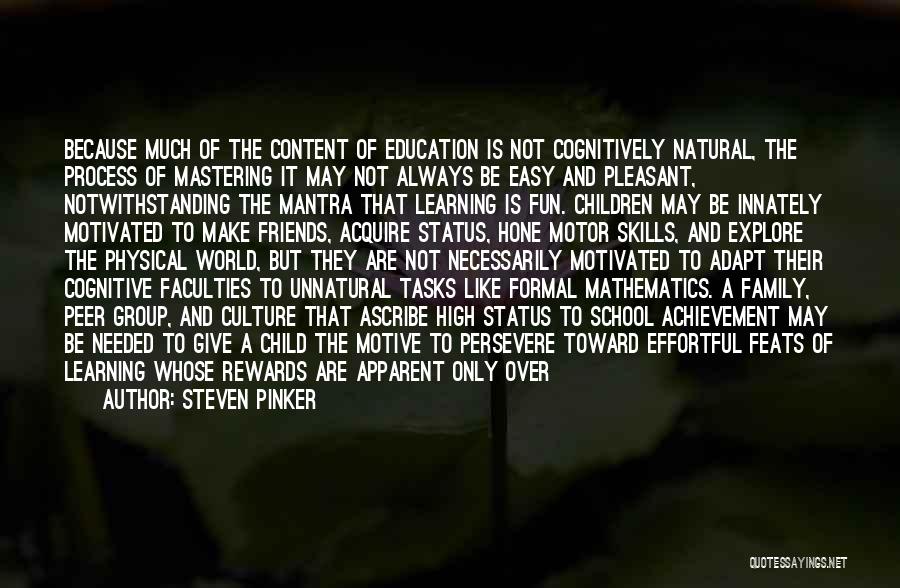
Because much of the content of education is not cognitively natural, the process of mastering it may not always be easy and pleasant, notwithstanding the mantra that learning is fun. Children may be innately motivated to make friends, acquire status, hone motor skills, and explore the physical world, but they are not necessarily motivated to adapt their cognitive faculties to unnatural tasks like formal mathematics. A family, peer group, and culture that ascribe high status to school achievement may be needed to give a child the motive to persevere toward effortful feats of learning whose rewards are apparent only over the long term. — Steven Pinker





